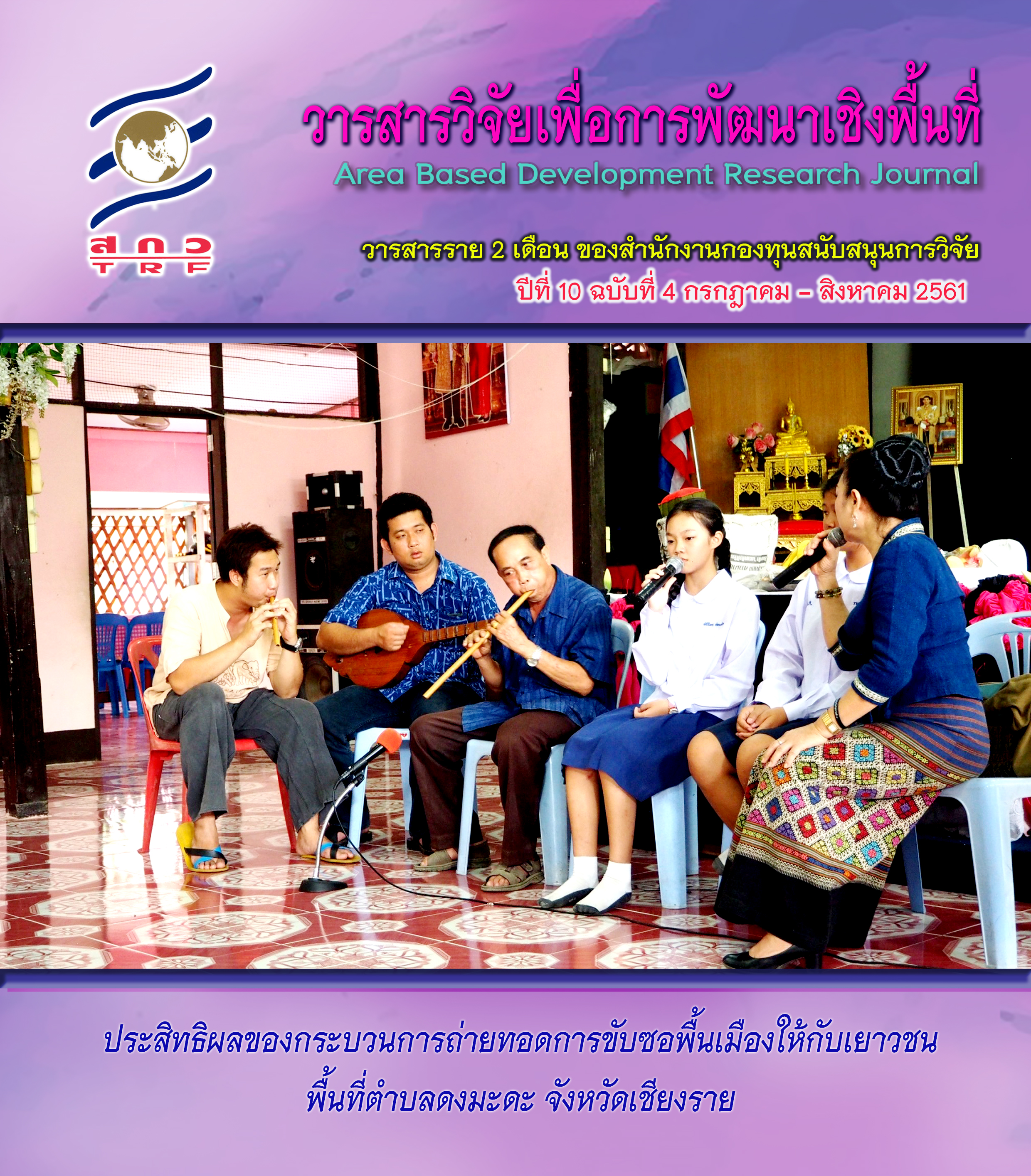ประสิทธิผลของกระบวนการถ่ายทอดการขับซอพื้นเมืองให้กับเยาวชนพื้นที่ตำบลดงมะดะ จังหวัดเชียงราย
Main Article Content
Abstract
The research is intended to study on the training process of “Sor”, singing performance, which is initiated and undertaken by the professional performer with the youths dwelling around the area of Dong Ma Da Community, Mae Lao District, Chiang Rai Province, as trainees. The objects of studies are included on professional “Sor” singer, one traditional music teacher, and three music and education experts, the first-to-third-years junior-high-schooler 40 examples, selected by purposive sampling, taken from Chumcon Ban Pha Koh Dum school, Mae Lao, Chiang Rai. Research instrument is a “Sor” singing lesson developed in collaboration with the professional performer. The research finds the effectiveness of the training depends upon three conditions, namely, trainer, lesson’s content, and trainee. Trainer needs a considerable skill of performance and composition. The lesson needs to be systematically arranged, enable the trainee to learn effectively its rhythmic system, composition, and practice, respectively. Trainee needs to read Thai language, speak local language, have time to learn and practice, also have confidence and interested in local culture. The research constructed a positive result on Dong Ma Da’s youths whose acknowledgement and valuation of traditional “Sor” performance are noticeable. It invoked a sense in which they felt it was their duties to preserve their cultural heritage. This “Sor” singing lessons could be used as an instrument for systematic learning of “Sor” singing performance and communal transmission of local knowledge.
Article Details
Area Based Development Research Journal values copyright protection and licensing to safeguard author rights and facilitate the appropriate dissemination of research. Our policies ensure openness, accessibility, and attribution. Authors retain copyright ownership, and articles are published under a Creative Commons Attribution License (CC BY), allowing sharing, adaptation, and proper attribution. Authors have the freedom to publish under the CC BY license, granting broad reuse and distribution permissions. The journal supports posting articles on third-party repositories, adhering to institutional and funding restrictions. Author guidelines detail copyright and licensing requirements, empowering authors with knowledge about their rights and responsibilities. These policies cultivate an environment of collaboration, openness, and responsible sharing, benefiting authors and the research community while honoring intellectual property rights.


